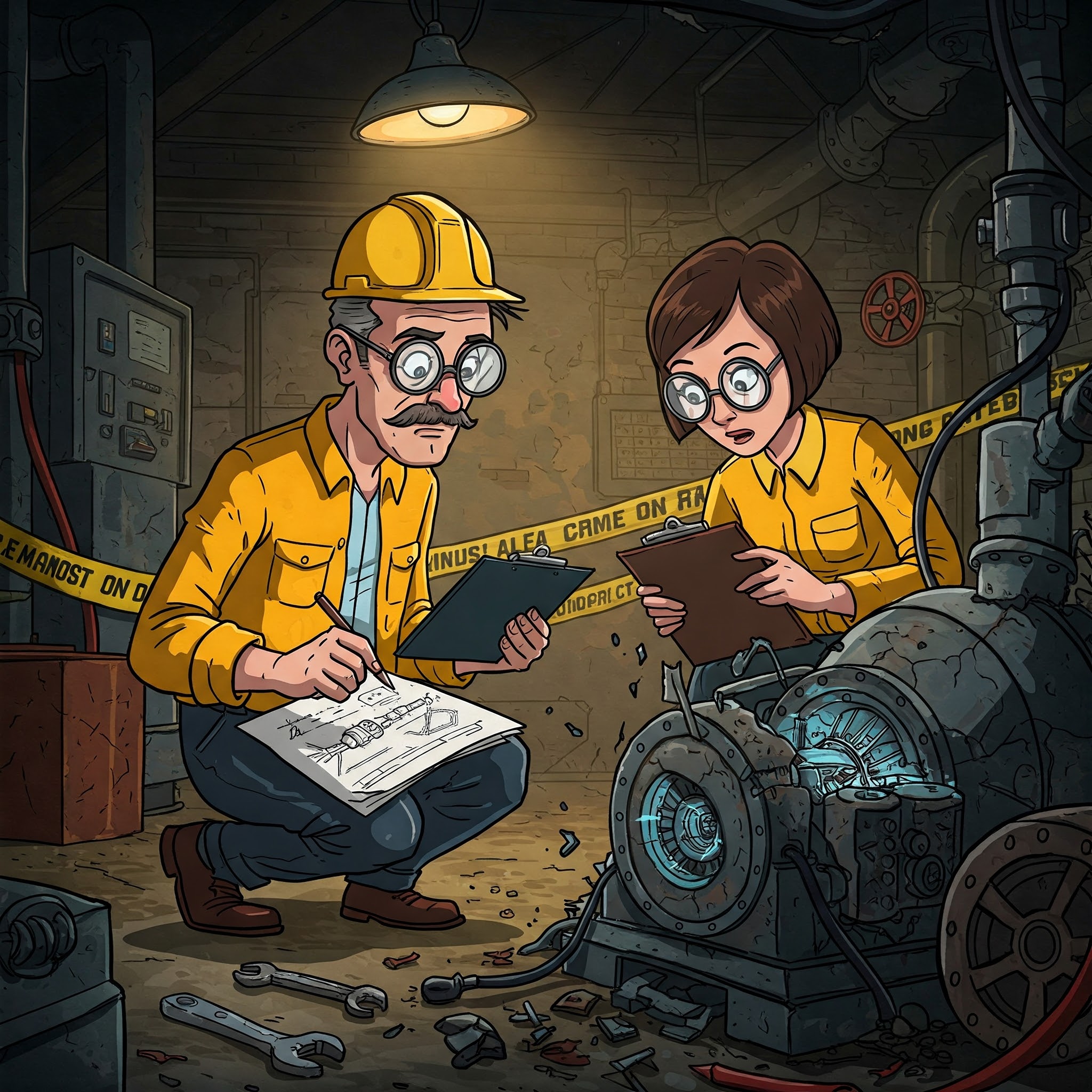Article [3 min read]
We approach industrial events as occurrences with prerequisites, evidence, and causes. This perspective leads us to treat each event stage almost like a crime scene—the more details you capture, the better the investigation.
When facing an industrial challenge—such as an equipment breakdown—it’s crucial to ask the right questions. Beyond the standard 4W+1H (What, When, Where, Who, and How), consider these:
✅ What is important to know about the situation?
✅ What needs to be discovered?
✅ What is critical to record?
✅ What must be effectively communicated?
A Practical Example: Cooling System Failure
Let’s apply these questions to a common issue: a cooling system failure that leads to overheating and quality defects.
🔍 What is important to know? The answer may not be obvious. In some cases, the root cause might be as simple as weather conditions, while in others, degraded lubrication could be the culprit. Think about your own operations—what factors should you always consider? Process parameters, site conditions, maintenance history, or even input material quality?
🕵️ What needs to be discovered? Some details are immediately available—control panel readings, service logs—while others require deeper investigation. After restoring the process, follow-up analysis can uncover hidden contributing factors.
📝 What is critical to record? Every piece of data, no matter how small, could be a crucial clue. Recording site conditions, adjustments made, and observed anomalies ensures a better understanding of root causes and helps prevent recurrence.
📢 What must be effectively communicated? Closing the loop means sharing findings with the right people—maintenance teams, operators, and even external contractors. Effective communication ensures that newly discovered insights become part of the organization’s collective knowledge.
Looking in the Right Places
A common mistake is searching for answers where it’s easiest rather than where the real clues are. It’s like looking for lost keys under a streetlight just because there’s light—even if you dropped them somewhere else. The most valuable insights often lie in unexpected, uncomfortable, or counterintuitive places.
Interpreting industrial events requires the skill to connect interlinked details and build a complete picture from seemingly unrelated occurrences. While modern technologies can streamline data collection, human judgment remains essential for capturing, analyzing, and acting on the right details.

Turning Details into Lasting Improvements
By training your team to think critically, leveraging technology for data collection, and fostering open communication, your organization can handle industrial events with greater insight and long-term effectiveness. The details you capture today lay the foundation for smarter, more resilient operations tomorrow.
[Promotion] At In-crew.app, we embed these principles into our platform—empowering teams to act smarter and respond effectively in any situation. You can try our application by clicking "Sign up for In-crew.app".
Discuss article on LinkedIn




